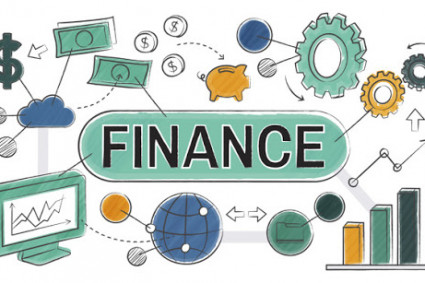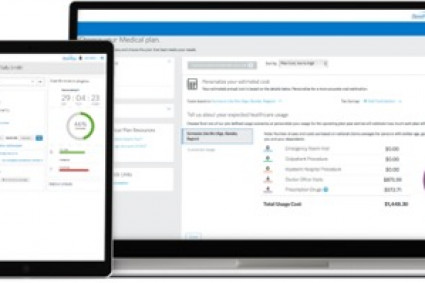
Small businesses are the lifeblood of our economy, and as the CFO of Austin Bookkeeping Hub, I've had the privilege of assisting many small business owners in navigating the often complex world of taxes. The good news is that there are numerous tax deductions available to small businesses that can help reduce the tax burden and keep more hard-earned money in your pocket. In this article, I'll share my insights and real-world experiences to shed light on ten essential tax deductions every small business owner should be aware of.
Deduction #1: Home Office Deduction
One of the most valuable deductions for small business owners is the home office deduction. If you use a part of your home exclusively for business purposes, you can deduct a portion of your home-related expenses, such as rent, mortgage interest, utilities, and insurance.
Real-Life Scenario:
I once helped a client who ran a graphic design business from home claim the home office deduction. This deduction significantly lowered their taxable income and reduced their tax bill.
Deduction #2: Business Vehicle Expenses
If you use a vehicle for business purposes, you can deduct certain expenses related to that vehicle. This includes mileage, fuel, maintenance, insurance, and even the cost of the vehicle if it's used primarily for business.
My Recommendation:
Keep detailed records of your business-related vehicle expenses. At Austin Bookkeeping Hub, we've seen clients miss out on significant deductions because they didn't maintain proper records.
Deduction #3: Business Meals and Entertainment
You can deduct a portion of the cost of meals and entertainment expenses related to your business. This deduction can be particularly useful for networking and building business relationships.
Real-Life Example:
I worked with a client who hosted a business dinner with potential investors. By properly documenting the expenses, they were able to deduct a significant portion, reducing their tax liability.
Deduction #4: Employee Wages and Benefits
If you have employees, their wages and benefits are tax-deductible. This includes salaries, bonuses, health insurance, retirement contributions, and other employee-related expenses.
Insight from My Experience:
Properly managing employee-related deductions is crucial. At Austin Bookkeeping Hub, we've helped clients ensure that they get the most out of these deductions while staying compliant with labor laws.
Deduction #5: Office Supplies and Equipment
The cost of office supplies, furniture, and equipment is deductible. Whether it's a new computer, printer, or even the paper and pens you use daily, these expenses can add up and result in significant deductions.
Real-Life Savings:
One of our clients was surprised to find out how much they could save by deducting the cost of office supplies. Keeping track of these expenses can make a substantial difference in your tax bill.
Deduction #6: Rent or Lease Payments
If you lease office space, equipment, or any other business-related assets, those payments are typically deductible. This deduction can be especially beneficial if you're not ready to invest in buying property or equipment.
My Personal Insight:
Leasing can be a smart financial choice for a small business. You get the equipment or space you need while also benefiting from valuable tax deductions.
Deduction #7: Professional Services
Fees paid to professionals like accountants, lawyers, and consultants are fully deductible. These experts play a crucial role in your business's success, and their fees can be a substantial write-off.
Real-Life Scenario:
One client we worked with had legal fees related to a contract dispute. By deducting these fees, they were able to recover some of the costs incurred during the dispute resolution process.
Deduction #8: Depreciation
Depreciation allows you to recover the cost of business assets over time. This can include property, equipment, and vehicles. Depreciation can provide substantial deductions over the years.
Real-Life Example:
A client of ours purchased new machinery for their manufacturing business. By taking advantage of depreciation, they saved a significant amount on their taxes, which helped offset the initial cost of the equipment.
Deduction #9: Marketing and Advertising
Money spent on marketing and advertising is crucial for business growth, and the good news is that it's deductible. This includes expenses related to website development, online advertising, print ads, and more.
Insight from My Experience:
Small businesses often underestimate the importance of marketing deductions. By properly accounting for these expenses, you not only lower your tax liability but also invest in the future of your business.
Deduction #10: Bad Debts
If you operate on an accrual accounting basis and have unpaid invoices from customers, you can deduct those bad debts. This deduction can help offset the loss of income resulting from non-payment.
Real-Life Savings:
I once helped a small business owner in the service industry claim bad debt deductions when several clients failed to pay their invoices. These deductions helped mitigate the financial hit caused by non-paying customers.
Actionable Takeaways
Now that you're armed with knowledge about these essential tax deductions, here are some actionable takeaways to keep in mind:
- Keep Detailed Records: Accurate record-keeping is essential for claiming deductions. Don't overlook even small expenses; they add up.
- Consult a Professional: Consider consulting with a tax professional or accountant, like the team at Austin Bookkeeping Hub, to ensure you're maximizing your deductions while staying compliant with tax laws.
- Plan Ahead: Tax planning should be a year-round endeavor. Don't wait until tax season to start thinking about deductions.
- Stay Informed: Tax laws can change, and new deductions may become available. Stay informed and adapt your tax strategy accordingly.
Small businesses play a vital role in our economy, and it's crucial to protect your hard-earned income. By leveraging these essential tax deductions, you can reduce your tax liability and reinvest in your business's growth and success. So, take control of your finances, keep meticulous records, and explore these deductions to secure your financial future.




